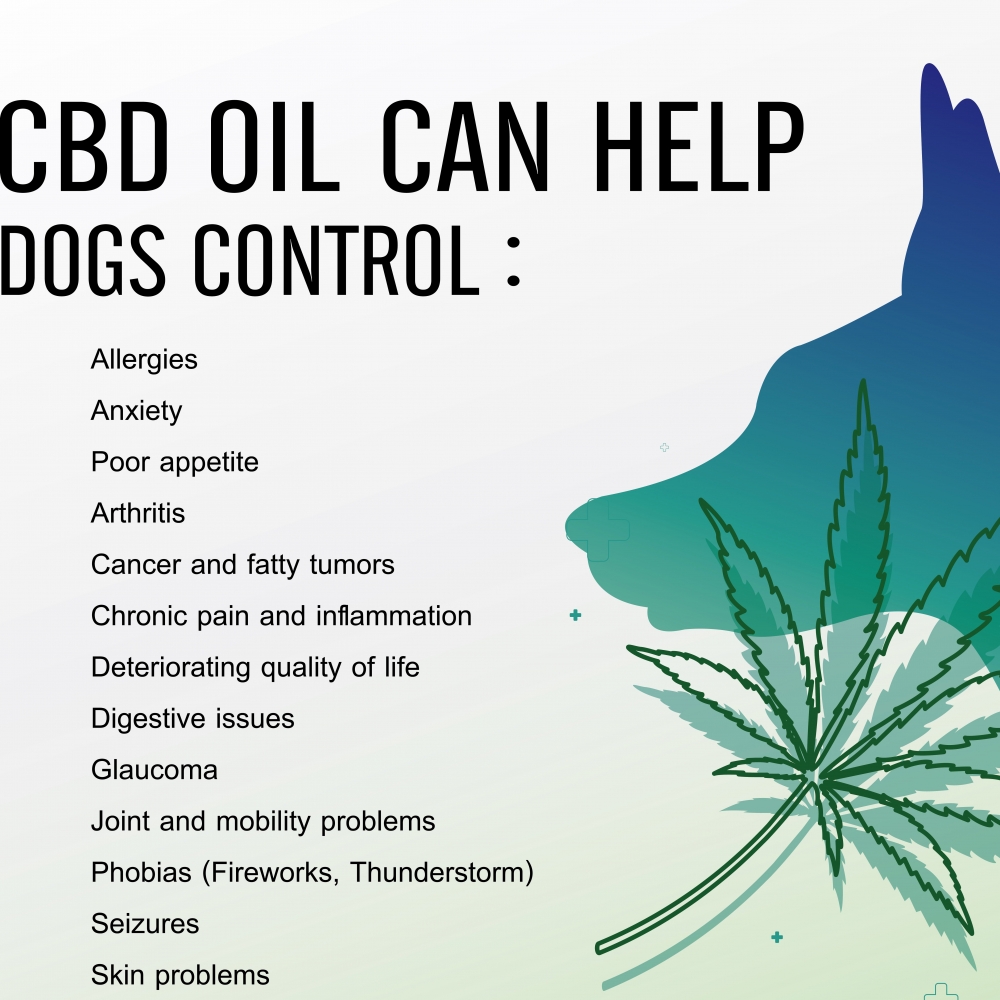
Many people seek therapeutic benefits from full-spectrum CBD. Full-spectrum CBD is the preferred choice. It is important to remember that full-spectrum CBD oil can contain traces of THC. This can cause mild side effects. Sometimes, a broad spectrum product is necessary to solve this problem.
Benefits
Broad-spectrum CBD allows you to enjoy the benefits of cannabis without needing to worry about THC. This is because CBD oil is naturally occurring and contains an array of cannabinoids. It is easy to grow and offers a wide range of health benefits.

Its cannabinoids are thought to help relieve the symptoms of anxiety and depression in people who suffer from these disorders. It can improve an individual's immune system as well as improve their sleep quality. These benefits make it a popular choice for those who suffer from severe stress and anxiety.
Full-spectrum vs. broad-spectrum
There are two types available in CBD oil: broad-spectrum or full-spectrum. Both oils contain the same amount but have different ingredients. Full-spectrum CBD has the entire spectrum of cannabis terpenes. Broad-spectrum CBD doesn't. Broad-spectrum CBD Oil is more concentrated than full spectrum and contains less THC. Both oils have the same effect on the body, but the former has an entourage effect.
Full-spectrum CBD contains the full range of cannabinoid compounds from the hemp plant, and contains only small amounts of THC. Although they are insignificant, broad-spectrum CBD products can contain trace amounts THC. Full-spectrum CBD has the potential to ease pain and treat mental issues.
THC content
You should consider the THC level when deciding if CBD oil you are using is safe. THC is less than 0.3% in full-spectrum CBD products, but it still has psychoactive effects that can make you feel high or impaired. THC can cause impairments in your judgement and coordination. It is dangerous for those who must drive heavy machinery. To avoid these risks, read labels carefully and stick to the recommended serving size.

Full-spectrum CBD products have a wide range of cannabinoids. These compounds work together to give you superior health benefits. This is also known as the entourage effects. Full-spectrum CBD offers many of the same health benefits as broad-spectrum, but without the psychoactive effects of THC. For this reason, it's a safer option for people who want to use CBD oil without the psychoactive effects.
FAQ
Which are the best CBD uses?
CBD can be used as an alternative to anxiety treatment. It can also be used for pain relief, epilepsy treatment, inflammation, depression and other conditions.
There are many ways to consume CBD. CBD is available in many forms.
CBD is a great option for many reasons. CBD has been shown to be beneficial for people with chronic pain, anxiety, PTSD, and other conditions.
Can CBD be a part of the future?
Yes. The answer is no, not because of its medicinal benefits, but because it helps people feel better without getting high.
The fact that it doesn't make you feel any different when you use it makes it perfect for those who are looking for an alternative to prescription drugs.
We know that cannabis can help with anxiety, depression, pain relief, insomnia, and other conditions, as evidenced by numerous studies.
Cannabinoids in cannabis interact with our brains. This interaction produces feelings of relaxation and well-being.
If you are interested in cannabidiol oil (CBD) for your health, it is important to know what it is and how it affects you.
What does the future hold for the CBD Industry?
The future looks bright for CBD. It's easy to see why so many people are jumping on board with this sector. With CBD products accounting for over $1Billion in global consumer spending, it is easy to see how the market is growing exponentially.
In fact, according to Statista, global sales for cannabidiol (CBD) were expected to reach $22.4 billion in 2019. This represents a nearly 200% increase over 2018!
The CBD market is also forecast to grow at 22.5% compound annual growth rate, which would result in nearly $6.8B in revenue by 2022.
This is great news not only for existing businesses but also for companies looking to get into the sector. The CBD market is still young and may face challenges.
Is there any evidence CBD has anxiety-reducing properties?
CBD oil works well to reduce anxiety. This is because it interacts directly with CB1 or CB2 brain receptors. The endocannabinoid system regulates mood and stress responses.
CB1 receptors are activated by chemicals released when we feel anxious. When activated, this receptor sends signals to the amygdala, which is responsible for emotional processing.
If the CB1 receptor becomes blocked, the brain doesn't get the signal to express emotions. CBD users have less negative feelings.
2017 research showed that CBD has been shown to reduce anxiety in those suffering from socialphobia. Another study showed that CBD reduces symptoms of PTSD.
A 2018 review concluded CBD has anxiolytic potential and could be used to treat generalized anxiety disorder.
Another study found that CBD could also be used to treat panic attacks.
However, several studies have shown that CBD actually increases anxiety levels in mice.
The researchers believe that this discrepancy between human data and animal results may be due to differences in how humans and animals respond to CBD.
CBD does not have any safety data. Most experts agree that CBD can be safely used when it is directed.
Which countries produce CBD with the highest quality?
The United States produces the vast majority of CBD products.
But Canada, Australia, New Zealand, and Israel are also producing high-quality CBD products.
Statistics
- The use of these products is likely to become even more widespread if the World Health Organization's recommendation that CBD no longer is scheduled in the international drug control conventions is adopted by the United Nations member states [201]. (ncbi.nlm.nih.gov)
- The inhibition of FAAH is predicted to lead to an increase in brain and plasma concentrations of AEA, which acts as a partial agonist at CB1R and CB2R, thereby increasing endocannabinoid tone [92, 110]. (ncbi.nlm.nih.gov)
- however, one study also found that these effects were virtually abolished when the original media (a nutrient broth agar) was replaced with one containing 5% blood (increasing the minimum concentration to ~160 μM CBD) [179]. (ncbi.nlm.nih.gov)
- While the primary injury may not be treatable, interventions that attenuate secondary sequelae are likely to be of benefit [203].Only one study (ncbi.nlm.nih.gov)
- A recent study [161] also found that in vitro CBD treatment (i.e., ≤ 2 h exposure to 10 μM) induced ~40% vasorelaxation in isolated (pre-constricted) (ncbi.nlm.nih.gov)
External Links
How To
What are the issues that the CBD industry faces?
The market for CBD products continues to grow at an amazing rate. Businesses looking to get into this market face many obstacles. There are many challenges facing businesses looking to enter this space, including low consumer awareness, high costs of entry and limited access to capital.
Many people don't know much about CBD or how it works. This means that they cannot make informed decisions about whether or not to buy CBD products.
As a result, most CBD companies rely heavily on word-of-mouth marketing. This is expensive because it requires paying for advertising and hiring staff to promote their brand.
High production costs are another problem facing new entrants in the CBD industry. It is very expensive to obtain the raw materials required for CBD products. CBD oil is made from hemp that has been grown in particular climates.
Grow enough hemp to produce CBD oil requires approximately $1,000 per annum. This means that many small farmers cannot afford the cost of starting.
Another challenge new entrants face in the CBD market is the lack of access to capital. Many people who want to start a business are discouraged by banks due to the stigma associated with the industry.
Last but not least, there is regulatory uncertainty regarding the sale and distribution of CBD products. There are currently no guidelines on how CBD products should marketed.
Some states have passed legislation restricting the sale of CBD products, but this has yet to become national policy.
Only Nevada and Maine have so far legalized recreational marijuana.
Massachusetts and Michigan are however considering similar measures.
These changes could cause increased competition among CBD manufacturers.
These factors lead to many entrepreneurs choosing to work from their home instead of starting a physical company.